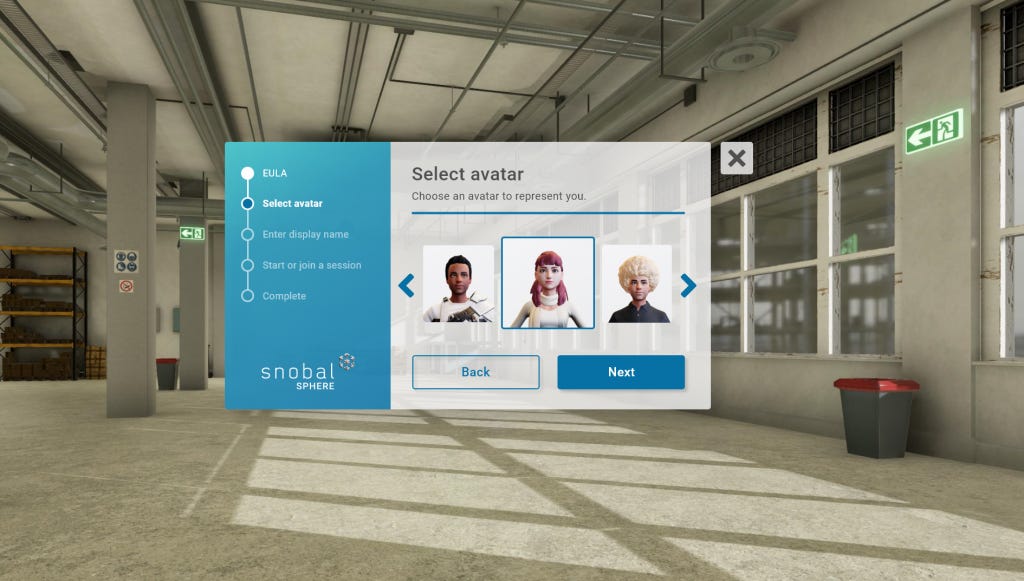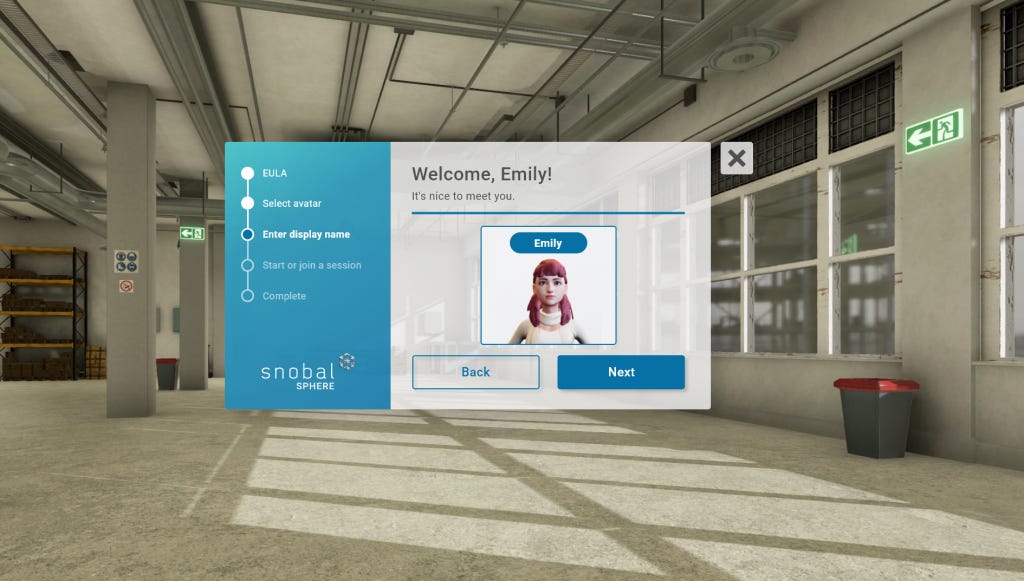Snobal and University of Arizona Partner to Research Virtual Avatar Preference in Bid to Ensure More Inclusive Virtual Learning Experiences
The innovative research recognises VR adoption for learning in enterprise and education is at a critical inflection point and there there is a need to look to industry standards.
Welcome to Snobal Midweek. This is where we share our update of what we're hearing, sharing and thinking about this week. As always if you find Snobal Midweek of value, please comment, forward or share.
Snobal and the Center for Digital Humanities at University of Arizona have announced they are the successful recipients of a Facebook Reality Labs (FRL) grant investigating the impact on learning of the choice and comfort level with digital avatars in immersive learning experiences.
As VR technologies become more widely adopted in educational settings to enhance student engagement there is an increasing focus on how best to ensure that VR technologies and experiences are accessible to people from diverse backgrounds and abilities.
The research will study students’ preference and selection of virtual avatars in an immersive virtual environment and how those decisions and options can foster a more positive learning environment for people from diverse backgrounds and abilities.
“The world works very differently than it did a year ago. We are seeing a huge shift in where and how people work and study and the adoption of digital technologies such as VR. VR has the potential to change the way we learn, collaborate and communicate but many of the elements around responsible development and use are still evolving including guidelines on virtual avatar design and preference,”
- Ann Nolan, Snobal co-founder and Chief Growth Officer
“We know that the experience people have of their virtual avatars impacts how they feel in VR. Avatars can literally change people’s behavior and attitudes and how they feel about themselves in VR. But we don’t know what avatar choice needs to be made available to students to ensure inclusive learning experiences? What drives avatar comfort in learning environments? This research is about enabling us to better understand this so the broader VR industry can have clear direction,” said Nolan.
Did you know: Avatars can change users’ behavior and attitudes. Research on the Proteus Effect has found that embodying Albert Einstein can increase cognitive task performance. Read more.
Bryan Carter, Director of the Center for Digital Humanities and Associate Professor of Africana Studies, will introduce his students to Snobal’s enterprise VR collaboration and presentation authoring app, Snobal Sphere, using the Pico Neo 2 Eye headsets.
The students will have a selection of diverse options as they establish themselves in the virtual environment and begin engaging with the course content. Anonymous data collected via survey, eye tracking and choice will be used to enhance user experience throughout the semester and presented through a white paper at the end of the study.
“Digital avatars are supposed to represent the user, but the virtual representations have often been a generic, one-size-fits-all variety, lacking in cultural diversity and physical ability…There is an opportunity now to develop industry standards and broad guidance on avatar comfort and other preferences to ensure that virtual technologies are accessible to people from culturally and linguistically diverse communities.”
- Bryan Carter, Director of the Center for Digital Humanities at University of Arizona
The use of digital technologies including VR/AR for remote collaboration has accelerated in both business and educational settings in the last year with online education assuming greater importance than before and students’ needs and expectations having changed.
The Snobal and The Center for Digital Humanities at The University of Arizona project is funded by a research grant from FRL, which requested proposals targeting the company’s third Responsible Innovation Principle: “Consider Everyone.”
Want to stay informed on this research? Sign up for updates.
In case you missed it
Spending big on collaboration: Global collaboration software spending reached US$22.6 billion in 2020, according to a report by global market consultancy IDC, an increase of 32.9% compared to 2019 with growth in emerging collaboration (VR) technologies expected to surge. More>
ByteDance acquire Pico Interactive: ByteDance, developer of video sharing app TikTok has acquired VR headset manufacturer Pico Interactive. Snobal partner Pico is the world's third-largest VR headset maker. More>
VR headsets sales soar: Global shipments for VR headsets have jumped 52.4% year on year in Q1 2021 reports global market consultancy IDC and VR is playing an increasingly important role. More>
VR helps with pain mgmt: Recent findings of a study in JAMA Network Open showed virtual reality (VR) is shown to have “significantly decreased pain and anxiety” in children undergoing painful procedures. More>
Growing the Metaverse: Facebook, Microsoft and other tech companies claim a VR universe (‘the metaverse’) is the future of the internet. But what is the metaverse? More>
Promise of Immersive Learning: US based think tank the Information Technology & Innovation Foundation believe that AR/VR solutions can enhance classroom experiences and expand opportunities at all levels of learning. More>




